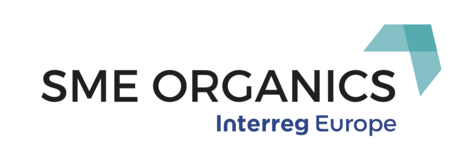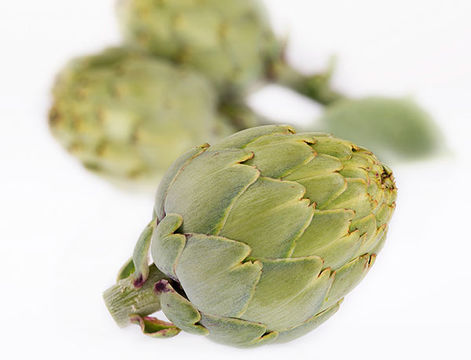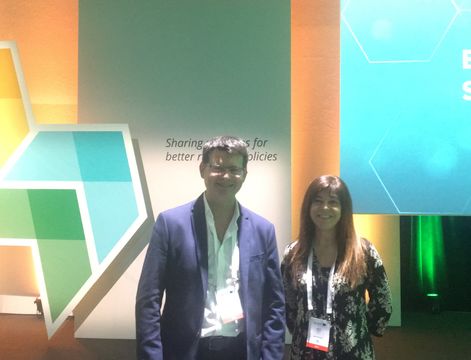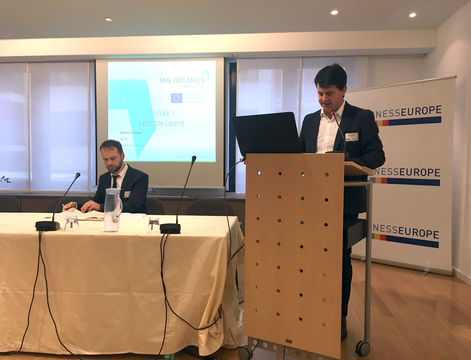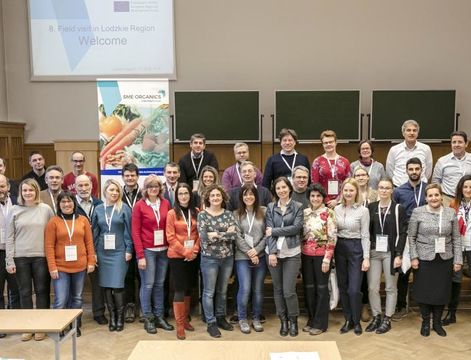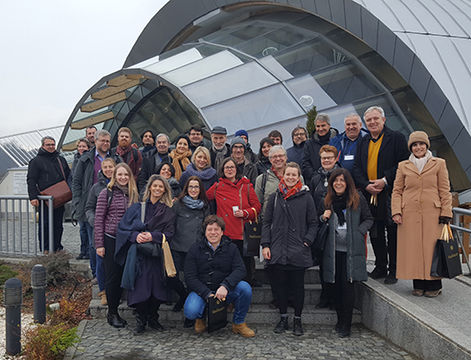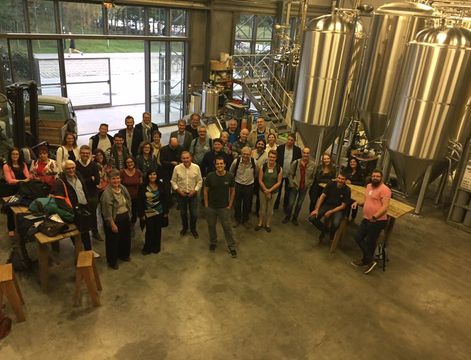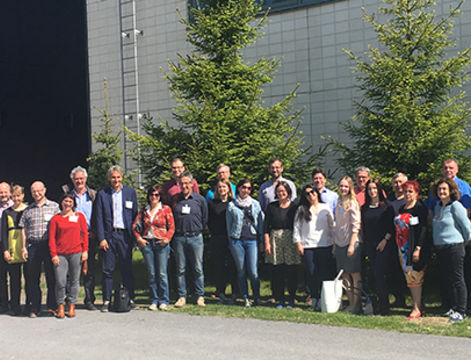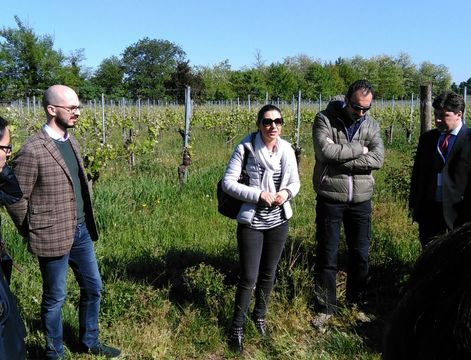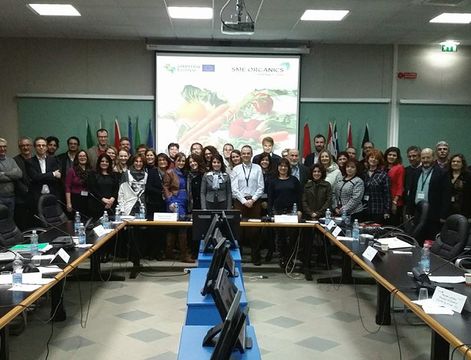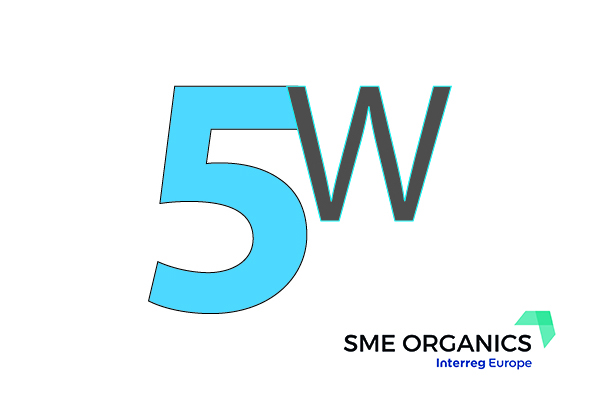The third inter-regional visit of SME Organics was held from 6th to 8th of February and focused on territorial development, local demand, training, traceability/certification and innovation in the organic industry. It was aimed to promote the successful experiences and the policies and programs supporting the organic sector in Puglia. It involved 50 participants among stakeholders and representatives of the 11 project partners from 7 European Countries (Belgium, Finland, France, Italy, Poland, Romania, and Spain) and Switzerland. During the 3-day programme including workshops, field visits and meetings, producers, distributors of the Apulian organic chain and representatives of associations, active stakeholders of the project, presented their experiences and good practice examples.
On 7th of February, works took place at the headquarters of Regione Puglia in Bari and started with the presentation of initiatives and measures to support the competitiveness of the organic industry in Puglia by Pasquale Orlando, Managing Authority of OP ESFR-ESF 2014-2020 of Apulia Region and Luigi Trotta, Director of Apulia Region Area of Competitiveness of agri-food supply chains.
THE APULIAN GOOD PRACTICES IN TERRITORIAL AND LOCAL DEVELOPMENT, TRAINING AND INNOVATION IN THE ORGANIC SECTOR, PRESENTED BY LOCAL STAKEHOLDERS
The point of sale Rete Utile Buono e Bio, is a small organic food store located in Bari, aimed to “supply local organic food to local people”. Its mission is to combine the development of organic production, mostly local, with the sale and delivery of certified products, with a view to creating training opportunities and facilitating social and labour inclusion of disadvantaged people (caused by physical and mental disabilities, or social and economic exclusion).
FEDERBIO is the Federation of Italian national Associations of farmers and other operators involved in all stages of organic and biodynamic agriculture that has developed Federbio Integrity Platform (FIP), an instrument for ensuring transactions among organic buyers. FIP was set up in 2015; its use was initially voluntary but starting from 2017 it has become compulsory for all Italian buyers. FIP is based on sharing the data collected from different actors and provides constant monitoring of all certificates of the operators involved in transactions and of their adequacy.
The Regional Observatory on Organic Farming in Apulia was set up in 2007 and its objectives are to monitor the regional organic sector, provide an information desk and some guidelines on organic production, support the regional Management Authority and collect and manage data and statistics on the organic sector through the Biobank Open project, a comprehensive database of organic operators connected with the national database and control system.
Puglia Social Agriculture Forum is a member of the National Forum of Social Agriculture. It was established in 2016 as a direct offshoot of the National Social Farming Forum and includes 40 members, farmers and other operators working in the field of social agriculture.
The BIOL Prize, dedicated to organic extra-virgin olive oils, is a global reference point for the olive oil sector. Every year, over 300 producers from more than 17 different countries and five continents, participate with their best oils. The jury is a panel of about 40 expert tasters from different areas of the world (coming both from producer countries, such as Spain, Tunisia, and consumer countries, including England Japan, China, and USA).
EcorNaturaSì is a leading company in the production, processing and distribution of specialized organic food. The EcorNaturaSì Group is the outcome of the merger of Ecor – the largest wholesale distributor of organic and biodynamic products in Italy – and NaturaSì – the brand of organic supermarkets.
Finoliva Global Service SPA (Bitonto) is a company of growers and producers. Its most important partner is Olive oil producers’ National Consortium (CNO), a national consortium made up of 40,000 olive growers and olive oil producers from the Italian leading olive producing regions (Puglia, Sicily, Tuscany, Calabria, Abruzzi).
Pastificio Attilio Mastromauro – Granoro Srl is based in Corato, Puglia, a Southern Italy region known since Roman times as the area producing the best durum wheat in Italy and Europe and as a traditional production area for pasta made from durum wheat semolina. Semolina pasta, Organic whole-wheat pasta, Linea Rossa (Tomato) and Extra Virgin Olive Oil are produced from organic agriculture.
Masseria Madonna dell’Assunta: it is an educational traditional farmhouse located in Altamura. It is an old farm-monastery built in 1600 by a community of Franciscan monks. Since 1990 Michele Dibenedetto and his family have devoted the ancient part of the monastery to the farm activity.
The Consortium “Taste&Tour in Masseria” was established by farmers to enhance their agricultural activities linked to old rural buildings.
